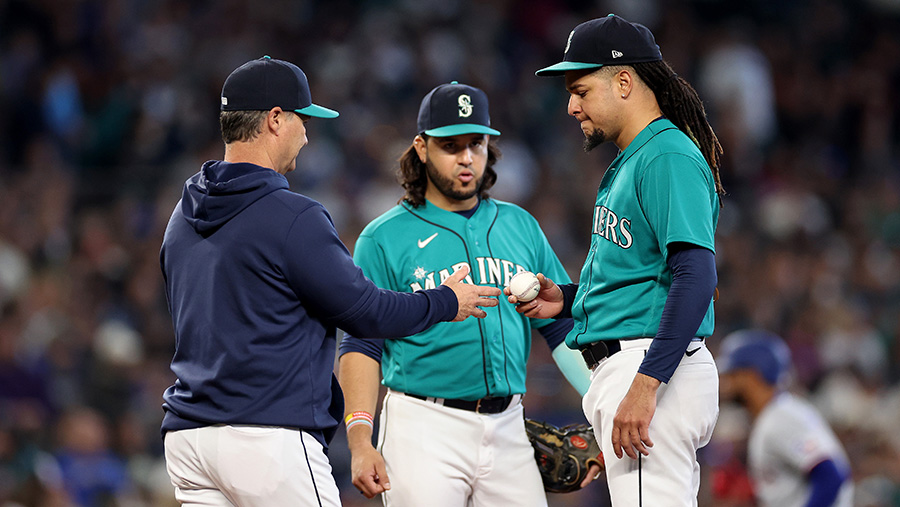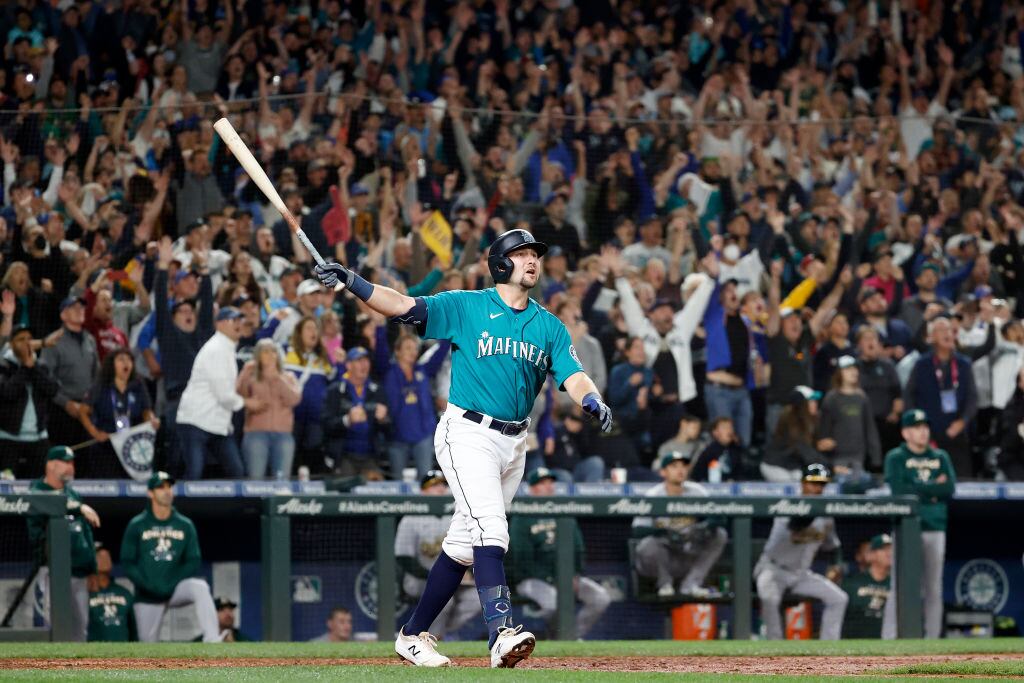The Seattle Mariners began the 2024 season with high hopes of securing a playoff berth and their first American League West title in 23 years. At one point in June, they led the division by as many as 10 games, but since then, their momentum has faltered. Heading into the final month of the season, the Mariners are 5.5 games behind Houston for first place in the AL West and trailing in the wild card race. With only 22 games remaining, their playoff chances appear slim, prompting the team to consider offseason changes to strengthen their roster for the future.
Jon Morosi, an MLB Network insider, recently shared his thoughts on the Mariners’ situation, emphasizing that the team’s path to improvement may require tough decisions. Morosi suggested that the Mariners might need to trade young pitchers like Bryce Miller, Bryan Woo, or Logan Gilbert, or significantly increase spending in free agency to improve their chances. He noted that there are few other options to make the team competitive enough to challenge Houston next season. This offseason will likely be crucial for Seattle to make moves that push them closer to their playoff aspirations.
A major factor contributing to the Mariners’ struggles this season has been their ineffective offense. The team’s revamped offense, which was expected to focus on contact hitting, has instead performed worse than anticipated. The Mariners rank last in the league for batting average (.217) and strikeout rate (27.4%), as well as near the bottom in slugging percentage (.365). Despite efforts to address the issues at the trade deadline by acquiring outfielder Randy Arozarena and first baseman Justin Turner, the Mariners’ offensive woes persisted, leading to the firing of manager Scott Servais and hitting coach Jarret DeHart.

Morosi pointed out that the Mariners’ offensive philosophy isn’t unique in baseball but may not be executed effectively throughout the organization. He stressed that while other teams have struggled offensively, few have the same level of pitching talent as the Mariners, making it especially frustrating to waste such excellent pitching performances. He suggested that a detailed offseason review is necessary to assess which players can contribute to the solution and which ones should be moved.
T-Mobile Park, the Mariners’ home stadium, has also been a factor in the team’s offensive struggles. Known for its pitcher-friendly dimensions, the park makes it challenging for hitters to perform at their best, which poses a disadvantage in attracting free-agent bats. Morosi pointed out that Seattle’s location and the park’s conditions make it difficult to sign prime offensive players without overpaying. He cited the example of Baltimore’s Anthony Santander, who could be a free-agent target but would likely require a significantly larger contract to come to Seattle due to these challenges.
Despite the difficulties posed by T-Mobile Park, Morosi acknowledged that the Mariners’ pitching staff is one of the best in the league, which has helped mitigate the effects of the stadium’s design. However, he also suggested that the Mariners might need to address issues like the batter’s eye or other aspects of the ballpark in the offseason. Morosi noted that teams like Houston had made similar changes in the past, leading to improved offensive production. Ultimately, he emphasized that if the Mariners can’t make significant changes to the stadium, they will need to retool their roster with different types of offensive players to build a more balanced team.
